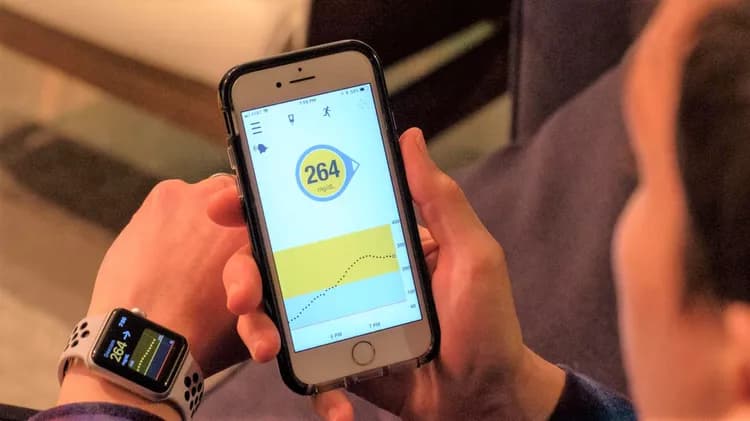
Continuous Glucose Monitors Proven Cost-Effective, Add To Quality Of Life For Diabetics
Continuous glucose monitors (CGM) offer significant, daily benefits to people with type 1 diabetes, providing near-real time measurements of blood sugar levels, but they can be expensive. A new study by researchers from the University of Chicago Medicine, based on a 6-month clinical trial, finds that use of a CGM is cost-effective for adult patients with type 1 diabetes when compared to daily use of test strips. The results are well within the thresholds normally used by insurance plans to cover medical devices. During the trial, CGMs improved overall blood glucose control for the study group and reduced hypoglycemia, or low blood sugar episodes.
The study, published April 12, 2018 in Diabetes Care, a journal from the American Diabetes Association, also simulated the costs and health effects of CGM use over the expected lifetime of patients. It showed that CGMs also increased quality of life by extending the amount of time patients enjoy relatively good health, free of complications.
"If you map out the lifetime of a patient, it's impressive. The CGM adds years of life and years of quality life," said Elbert Huang, MD, Associate Director of the Chicago Center for Diabetes Translation Research at the University of Chicago and senior author of the study. "While it does cost additional money, the costs saved by lower risk of complications offsets the upfront costs."
A continuous glucose monitor uses a tiny sensor inserted under the skin to test blood sugar levels every few minutes throughout the day and wirelessly sends those data to a monitor. The first generation of CGMs transmitted data to a stand-alone electronic device that looks like a pager, but newer models can work with apps on smartphones and smartwatches. This provides near-real time information and allows diabetics to adjust their physical activity, food intake or insulin levels quickly, preventing severe high or low blood sugar episodes.
The study was a randomized trial of 158 patients with type 1 diabetes who relied on multiple, daily injections of insulin (not an insulin pump). Two-thirds of the group used CGMs, and the remaining third used the finger prick method with test strips and a meter to check their blood sugars.
At the end of the six-month trial, the total health care costs of using a CGM was $11,032, compared to $7,236 for manual testing. The cost differences were mostly due to the upfront cost of the CGM device, about $2,500. But the CGM group saw reductions in their hemoglobin A1C levels, a common measure of blood sugar control, and experienced fewer non-severe low blood sugar events.
The researchers also used a statistical model to simulate costs and health effects of CGM use over the average expected lifetime of patients. The model calculated a value called quality-adjusted life years (QALYs) for each patient, which represents the amount of time they live free of any complications or serious medical incidents. In the lifetime analysis, the CGM was projected to reduce the risk of complications from type 1 diabetes and increase QALYs by .54, basically adding six months of good health.
The analysis calculated an incremental cost-effectiveness ratio, which shows the difference in costs for a treatment, in this case the CGM vs daily test strips, over the health benefit it adds, or the quality of life years. The cost-effectiveness ratio for the CGM was about $100,000 per QALY for the overall population. This is well below the threshold insurance plans and government agencies such as Medicare normally use to decide whether or not to cover a new treatment or medical device. The ratio was calculated based on the recommendation to use a CGM sensor for seven days, but if that use was extended to 10 days, as many people do, that ratio was reduced to about $33,000 per QALY.
"Based on this analysis, the CGM looks like a very valuable technology, one that doesn't cause harm and makes people's lives better," Huang said. "Hopefully, this will become an important part of the decision-making process to make the CGM available to more people."
Advances in CGM technology will also continue to lower costs, as it further integrates with software and everyday digital devices such as smartphones.
"It hints at a future of chronic disease management that's more cost effective and gives patients more control," Huang said. "Basically, all the CGM does is provide information, but that allows patients to change the way they eat or time their medications. It empowers patients to manage their own health."
Related Articles
Test Your Knowledge
Asked by users
Related Centers
Related Specialties
Related Physicians
Related Procedures
Related Resources
Join DoveHubs
and connect with fellow professionals

0 Comments
Please log in to post a comment.